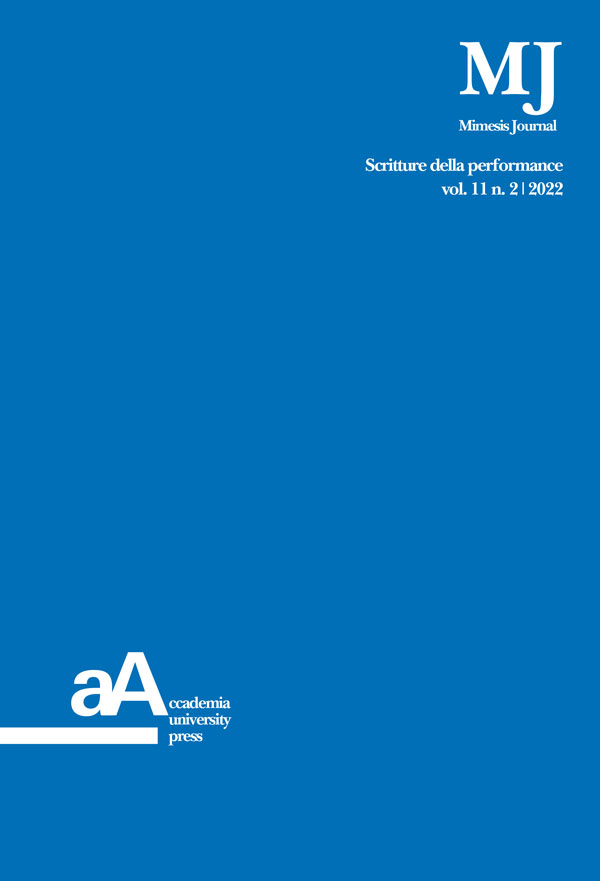Il tempo vuoto
L’arte dei corpi nell’educazione scolastica, sociale e civica
DOI:
https://doi.org/10.4000/mimesis.2548Abstract
In its broadest performative sense, theatre is the art of individual and social bodies, aimed at the formation, education, development and building of single persons, groups, communities. It does this in many ways and forms, ranging from play to religious rituals. Performing arts and practices take place in special, unproductive, sacred, empty times and support the generation, regeneration, well-being and health of people, groups, communities, societies. They represent the eros of destruction, the true bugbear of humanity, to tame and cure it. A growing political crisis underlies our current troubles. Nuclear threat, climate crisis, economic downturn, civil wars, national and international conflicts are leading us towards self-destruction. Only the mobilisation, cooperation, proactive action of the widest number of individuals, groups, communities, institutions, peoples and nations can save us and our planet. We need to meet, get to know and understand each other, imagine solutions, enact the eros of construction on a local and global scale. This essay attempts to demonstrate how the art of bodies is the main tool for the glocal creation of personal, public and planetary health pathways in education, in schools, communities and in the entire society: something neither global markets nor sovereign states are considering.


